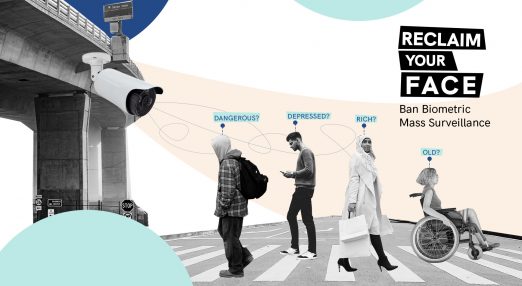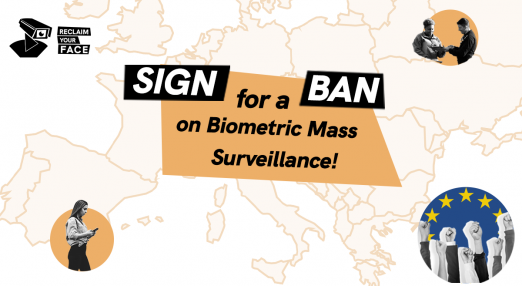Privacy and confidentiality
Filter resources
-

Italy proposes age verification and digital identities for accessing social media
EDRi member Hermes Center sheds light on the current case against TikTok in Italy, where three solutions are circulating on how to make sure that children will not access certain online contents unless supervised by their guardians.
Read more
-

Shedding light on the DWP staff guide on conducting fraud investigations
In 2019, the UK Department for Work and Pensions published their two-part staff guide on conducting fraud investigations. Privacy International went through the 995 pages to understand how those investigations happen and how the DWP is surveilling benefits claimants suspected of fraud.
Read more
-

Mass facial recognition is the apparatus of police states and must be regulated
Scientists have shown the inherent structural discrimination embedded in biometric systems. Facial analysis algorithms consistently judge black faces to be angrier and more threatening than white faces. We also know that biometric systems are designed with a purportedly “neutral” face and body in mind, which can exclude people with disabilities and anybody that does not conform to an arbitrary norm.
Read more
-

New ECI calls Europeans to stand together for a future free from harmful biometric mass surveillance
The Reclaim Your Face coalition launches a European Citizens’ Initiative (ECI) today to ban biometric mass surveillance. The ECI represents the voice of those who oppose a dystopian future and instead want a future in which choices are made by us, not by algorithms. The initiative needs to collect 1 million signatures in at least 7 EU countries during the next year.
Read more
-

The companies in control of our secret identities
EDRi member Privacy International published a research on ad tech companies' data collection practices which are employed to create an assumed picture of you. The study shows that the profiles created for the data subjects are based on information pieced together from incomplete data and using marketing algorithms. Hence, this data forms an uncanny picture of yourself, one that you may not have voluntarily revealed, a digital shadow over which you have very little practical control.
Read more
-

Huawei captures Balkan’s hearts and minds
EDRi member Citizen D reveals Huawei's lobbying practices in Slovenia, where media outliets are siding with the Chinese tech company, whilst ignoring the company's human rights violations in China and the development of a city surveillance system in Belgrade.
Read more
-

Wiretapping children’s private communications: Four sets of fundamental rights problems for children (and everyone else)
On 27 July 2020, the European Commission published a Communication on an EU strategy for a more effective fight against child sexual abuse material (CSAM). As a long-term proposal is expected to be released by this summer, we review some of the fundamental rights issues posed by the initiatives that push for the scan of all private communications.
Read more
-

12 benchmarks for the reform and oversight of intelligence services in Austria
EDRi member epicenter.works presents the benchmarks against which the new reform of the Austrian Federal Agency for State Protection and Counterterrorism must be measured. With these criteria, guided strongly by international standards and jurisdiction, epicenter.works expect the legislative proposals on the reform in the next few weeks, ready to defend fundamental human rights.
Read more
-

How to Reclaim Your Face From Clearview AI
The Hamburg Data Protection Authority deemed Clearview AI’s biometric photo database illegal in the EU as a result of a complaint Matthias Marx, a member of the Chaos Computer Club (an EDRi member) filed.
Read more
-

#PrivacyCamp21: Event Summary
The theme of the 9th edition of Privacy Camp was "Digital rights for change: Reclaiming infrastructures, repairing the future" and included thirteen sessions on a variety of topics. The event was attended by 250 people. If you missed the event or want a reminder of what happened in the session, find the session summaries below.
Read more
-

EU Terrorist Content Online Regulation Could Curtail Freedom of Expression across Europe
Counter-terrorism laws that have continued to pile up in the past years in Europe have constantly eroded the rule of law and reinforced executive powers of the state to the detriment of judicial oversight.
Read more
-

La Quadrature du Net asks for renewed support to challenge TERREG in France
In light of the European Parliament's vote on the Regulation to prevent the dissemination of said “terrorist content”, EDRi observer La Quadrature du Net (LQDN) sheds light on some of the most concerning provisions which have to be addressed before the final adoption of the regulation.
Read more
